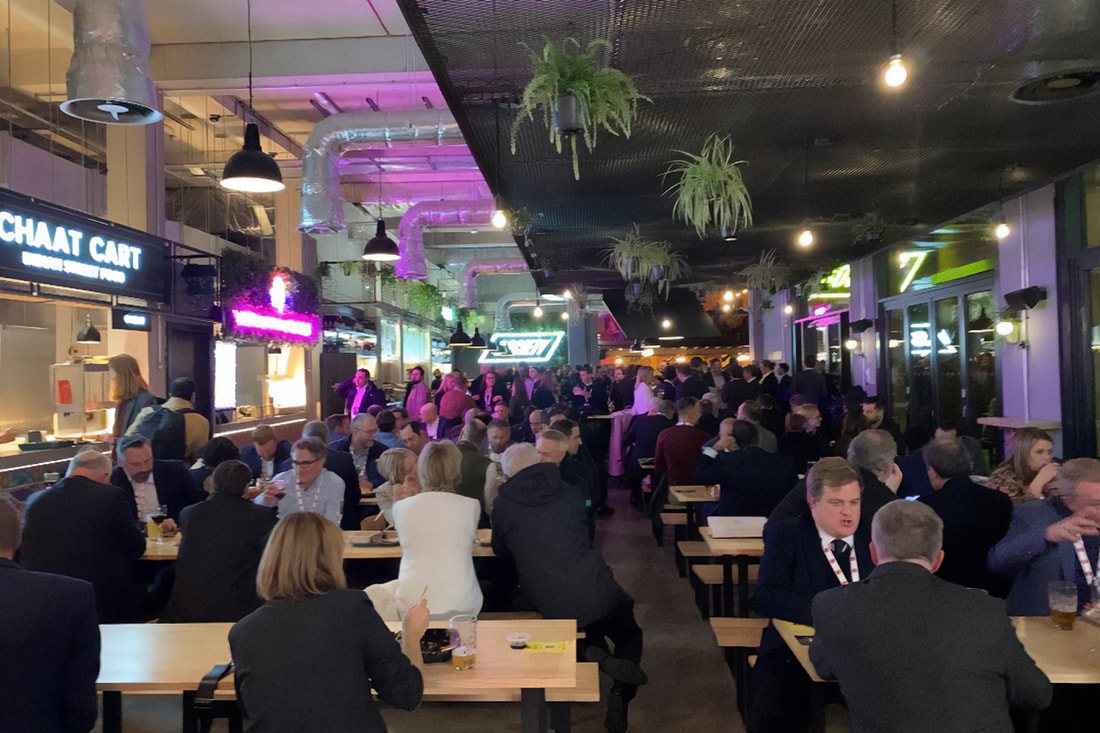UK Hoteliers Turn Attention to Industry's Rebuild at Manchester's Annual Hotel Conference
Executives Discuss Long-Term Strategies for How To Care for Employees, Community and Environment
MANCHESTER — Maybe whisper it, but hoteliers at the Annual Hotel Conference have the definite sense that the COVID-19 pandemic could soon be behind the United Kingdom.
Yet caution is required as the virus surges elsewhere in Europe.
Several countries in mainland Europe have renewed lockdowns, and parts of the U.K. that have different administrations for certain aspects of law, including health — Wales as a prime example — might return to more stringent controls, too. But it does feel that now is the time for most to start planning the future and putting into place robust and tweaked management and operational strategies.
At a panel discussing new hotel operations, hotel adviser Robert Crook said, “Now is the time to jump off the cliff and build your wings on the way down.”
Rethinking hotel operations is a necessity but must be done as efficiently as possible, Crook said. Some of the new ways are improvements upon traditional methods and are here to stay.
There also is the reality that debt hovers over many U.K. hoteliers. Government help is largely over, even though there are new regulations concerning the repayment of commercial debt, and how much power, or aggressiveness, lenders can assert their demands. There also is government help in the recent budget on business-rate holidays.
Alexi Khajavi, president of hospitality and travel at conference host Questex, reminded attendees that “force majeure was the most Googled phrase in 2020.”
Care of staff — whether that means the fewer employees that remain or new faces that have come in — environment, social and governance considerations, new business models, and above all, creativity and community are all at the heart of the new tomorrow, but this is an industry of original thinkers and hospitable souls.
It's time to start the great rebuild.
Yet caution is required as the virus surges elsewhere in Europe.
Several countries in mainland Europe have renewed lockdowns, and parts of the U.K. that have different administrations for certain aspects of law, including health — Wales as a prime example — might return to more stringent controls, too. But it does feel that now is the time for most to start planning the future and putting into place robust and tweaked management and operational strategies.
At a panel discussing new hotel operations, hotel adviser Robert Crook said, “Now is the time to jump off the cliff and build your wings on the way down.”
Rethinking hotel operations is a necessity but must be done as efficiently as possible, Crook said. Some of the new ways are improvements upon traditional methods and are here to stay.
There also is the reality that debt hovers over many U.K. hoteliers. Government help is largely over, even though there are new regulations concerning the repayment of commercial debt, and how much power, or aggressiveness, lenders can assert their demands. There also is government help in the recent budget on business-rate holidays.
Alexi Khajavi, president of hospitality and travel at conference host Questex, reminded attendees that “force majeure was the most Googled phrase in 2020.”
Care of staff — whether that means the fewer employees that remain or new faces that have come in — environment, social and governance considerations, new business models, and above all, creativity and community are all at the heart of the new tomorrow, but this is an industry of original thinkers and hospitable souls.
It's time to start the great rebuild.
“Normally, hotel [return on investment] is long term, but with office far from returned and retail on its knees, the attractiveness of our sector is apparent to see.”
—Adela Cristea, vice president and head of business development for the United Kingdom and Ireland, Radisson Hotel Group
“Critical is the attitude and professionalism of line managers, and how that moves down through the staff. The only way out of the worst crisis anyone has ever known is through the human element.”
—Liutauras Vaitkevicius, managing director, Zetter Hotel Group
—Adela Cristea, vice president and head of business development for the United Kingdom and Ireland, Radisson Hotel Group
“Critical is the attitude and professionalism of line managers, and how that moves down through the staff. The only way out of the worst crisis anyone has ever known is through the human element.”
—Liutauras Vaitkevicius, managing director, Zetter Hotel Group

